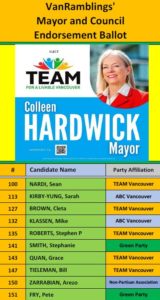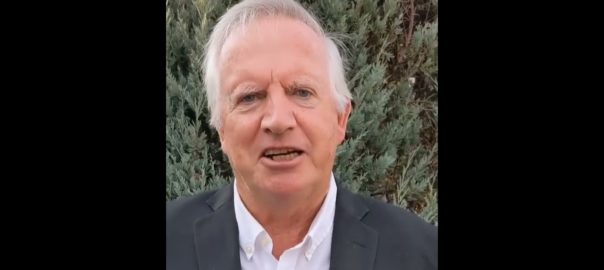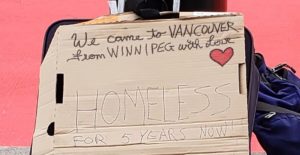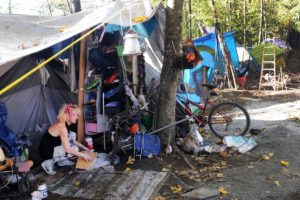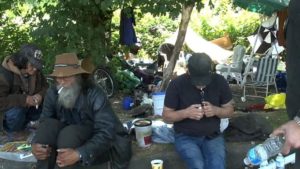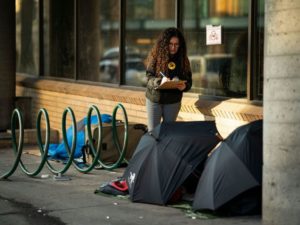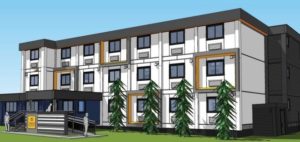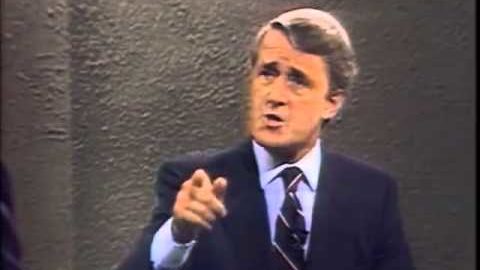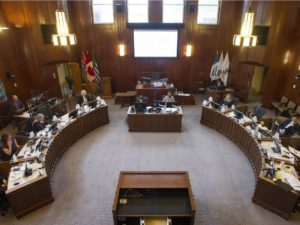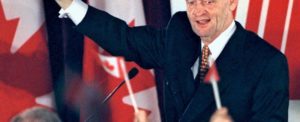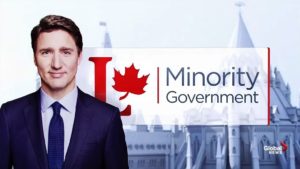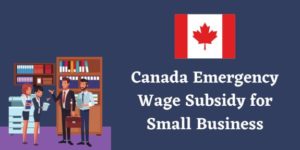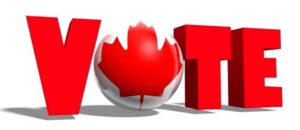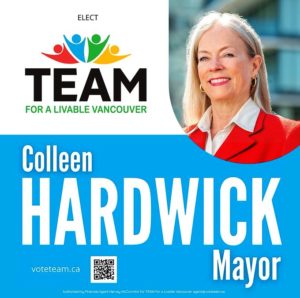
Almost inevitable that VanRamblings would endorse Councillor Colleen Hardwick as Vancouver’s next Mayor, don’t you think?
Why is VanRamblings enthusiastically and wholeheartedly supporting and endorsing TEAM … for a Livable Vancouver’s Colleen Hardwick for Mayor of Vancouver?
Listen to what Patrick Condon — the James Taylor chair in Landscape and Livable Environments at the University of British Columbia’s School of Architecture and Landscape Architecture — has to say about Colleen Hardwick.
Make no mistake, Colleen Hardwick is the only candidate running for Mayor in 2022 who is on your side, on the side of all of us who live within one of the 23 currently livable Vancouver neigbourhoods, that each of the other Mayoralty candidates would seek to destroy, as incumbent Mayor, Forward Together’s Kennedy Stewart, ABC Vancouver’s Ken Sim, the Non-Partisan Association’s Fred Harding, and Progress Vancouver’s Mark Marissen envision a future tower-driven city, encroaching on every neighbourhood, with twenty to seventy storey towers Vancouver’s almost inevitable future were any of these men to assume the Mayor’s office post-Election Day, only two short days from now, on Saturday, October 15th.
Colleen Hardwick is the only democrat running to be Mayor of Vancouver, the only candidate for Mayor that would pause, if not rescind, the Broadway Plan and Vancouver Plan, as she and her cohort of outstanding TEAM … for a Livable Vancouver’s candidates for Vancouver City Council would consult with those of us who live in each of the neighbourhoods across the city, towards building an inevitably more dense city, while developing renewed community plans that would give you a voice in how your neighbourhood would develop in the years to come.
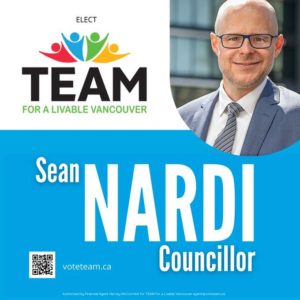
Have we written that Sean Nardi is one of our very favourite candidates running for office as a TEAM … for a Livable Vancouver candidate for Vancouver City Council?
No? Well, now we have.
As a key organizer of the Fairview Slopes / South Granville Action Committee, Sean devoted countless hours to rallying the community to fight the out-of-scale for the neighbourhood, 28-storey Jameson Birch Street project, devoting hundreds of hours to analytical research and neighbourhood organizing. Sean’s painstaking fact-based advocacy work impressed the hell out a broad network of activists from across the city, City Councillors who sat up straight in their chairs when he addressed Council, senior staff within the labyrinthine City Hall bureaucracy, and our devoted civic affairs journalists. Believe us when we write, Sean means to make a difference — and with his newly-acquired MBA from Simon Fraser University, a dozen years of project management in the field of information technology, his hard-won expertise in problem-solving, as well as his work in crisis management and fiscal management, plus Sean’s work developing innovative strategies to build better, more efficiently, more humanely — always with a focus towards addressing issues involving our present climate emergency — Sean Nardi is definitely a candidate for Vancouver City Council for whom you want to cast a vote.
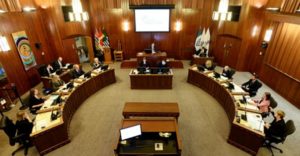
While most of our current crop of Vancouver City Councillors — not to mention, the current crop of Vancouver Mayoral candidates — consider themselves to be Gods on Mount Olympus, the holders of all knowledge, who believe they have the preordained right to rule over you, whether you like it or not, TEAM … for a Livable Vancouver’s Mayoral candidate Colleen Hardwick and her outstanding, feet planted firmly on the ground Council candidate slate walk the Earth just as you do.
TEAM will work for a livable, affordable city for local residents, for renters, housing co-op members, and condominium and home owners from across the city. TEAM … for a Livable Vancouver will focus on delivering homes at a lower cost, including for low wage workers, the homeless, and those experiencing housing insecurity.
Providing a mix of non-market and market housing, for rentals and ownership, including housing co-ops — where no one will pay more than 30% of their income to be housed — co-housing, secondary suites, multiple conversion dwellings, infill, laneways, multiplexes, townhouses, and apartments — planned in partnership with local residents at the scale of each neighbourhood, employing City-owned, provincial and federal Crown lands to build affordable housing across the city, TEAM … for a Livable Vancouver is making the commitment to you that they will work to build affordable housing that will meet every Vancouver citizen’s needs.
TEAM Mayoral candidate Colleen Hardwick, and her outstanding and well-experienced TEAM … for a Livable Vancouver slate of candidates for Vancouver City Council, acknowledge the contract the City of Vancouver has entered into with the provincial government that will see the construction of towers within a two-block radius surrounding Millennium line Skytrain stations along the Broadway corridor. The notion that this mass, tower-driven style of development, though, might become Vancouver’s default housing typology is anathema to everything the TEAM … for a Livable Vancouver slate of candidates for Vancouver City Council stand for.
Campaign manager for, and candidate for Vancouver City Council with, TEAM … for a Livable Vancouver, the well-experienced and tremendously engaging Bill Tieleman, no matter which other candidates for office in 2022 that you are selecting to cast your vote for, Bill Tieleman is the must, must, must-elect for Vancouver City Council this year. No other candidate in this election is as accomplished as Bill Tieleman as a communicator, and as someone who has worked deep within government — from 1996 through 2001, for instance, as Director of Communications in the Premier’s office, in the first term when the provincial New Democratic Party was in power — Bill is a must-vote. You’ve likely seen Bill fighting — successfully! — for the re-opening of the Coast Guard station just west of the Burrard bridge, and seen him on your TV screens many evenings representing the interests of workers, and the community-at-large, always fighting the good fight on your behalf.
Did we mention that Bill Tieleman is VanRamblings’ “next door neighbour” (he lives in the condominium due west of our housing co-op home), and that Bill is the most honest and authentic person we know, that Bill brings himself to the world with such heartbreaking integrity, fidelity and sense of purpose, with an unmatched energy as he works for social change, and a fairer, more just city, region and province, that for us — on almost a daily basis — is little short of revelatory. Make sure you save a vote for Bill Tieleman, to help us realize the city we need.

Well, the six outstanding TEAM … for a Livable Vancouver slate of candidates for Vancouver City Council, including a heartbreakingly bright Colleen Hardwick for Mayor of Vancouver, constitutes for VanRamblings the must-elect majority that, when elected, will turn this city around, and set a course that will place the city back in the hands of Vancouver citizens, and not the developer class in our city, as TEAM … for a Livable Vancouver sets about to rebuild the trust of Vancouver residents, lost over the course of the past fourteen years, first with the 2008 election of a majority Vision Vancouver City Council, followed by Vision 2.0 this past four years.
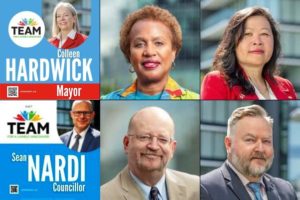
Above, VanRamblings has identified the must-elect majority who will turn our city around, build affordable housing, build a human-scale transit system that serves the needs of Vancouver residents across the city, re-engage with all of us who live in one of Vancouver’s 23 vibrant neighbourhoods, address the issue of public safety, and work with the federal and provincial governments to respond to the human tragedy on Vancouver’s Downtown Eastside that warehouses our most vulnerable citizens in substandard SROs, where crimes against those who call the DTES home continues to run rampant, where death has become a tragically common feature of life around Main and Hastings, where we must do better, and with a TEAM-led civic administration at Vancouver City Hall, we will do better.
VanRamblings has known Mike Klassen for more than 30 years, as the most honourable person of our long acquaintance, a friend in a time of need, phenomenally skilled, a true neighbourhood advocate, and VanRamblings’ webmaster who created our site during the holiday season in 2003, débuting VanRamblings in 2004.
And now, Mike Klassen is running for Vancouver City Council, with ABC Vancouver.
We have known Mike Klassen, always, to be fair-minded, possessed of an umatched personal and professional integrity, and during his years as Vancouver’s première civic affairs columnist with the Vancouver Courier newspaper — where his writing was superb, his insights possessed of an integrity and a heart that spoke both to his professionalism as a journalist, and to how Mike has always brought himself to the world — there was no finer journalist in town. There is no one running for City Council in 2022 who is more intimately familiar with how government works, how decisions are made, and how change for the better comes about.
In his work as a vice-president with the B.C. Home Care Providers Association, Mike Klassen has gained a rapport with members of the New Democratic Party caucus that is second-to-none, each member of that caucus having come to respect Mike Klassen as someone who gets things done, someone with whom it is easy to work towards change for the better, someone who does his homework, someone who is non-partisan in the interests of better serving the needs of British Columbians, and those of us who call Vancouver home. Quite simply, Mike Klassen gets things done.
VanRamblings loves Mike Klassen, the candidate and our friend, with all our heart, and believe that he will emerge on Council as a generational difference maker for the better. Please, please, please save a vote for ABC Vancouver’s Mike Klassen.
Sarah Kirby-Yung. Yep, there she is above, VanRamblings’ favourite political figure, on Vancouver Park Board — where, as Chairperson of the Board, Sarah Kirby-Yung worked with then Park Board General Manager Malcolm Bromley to ban cetaceans in captivity (that means no more whales cruelly kept in “cages” at the Vancouver Aquarium) — and this past term on Council, as one might reasonably expect if you know Sarah Kirby-Yung at all, Ms. Kirby-Yung emerged as the hardest-working member on Council, steering clear of the toxic politics that weighed Vancouver City Council down for much of the past four years, on a Council where Ms. Kirby-Yung actually managed to build alliances across the political spectrum, among a disparate group of her fellow electeds — with Green Party of Vancouver City Councillor, Pete Fry (who VanRamblings is also endorsing!), who loves, respects and admires Sarah Kirby-Yung, as is the case with Sarah’s fellow ABC Vancouver colleagues, Lisa Dominato and Rebecca Bligh, achieving this feat on a toxic City Council, where she even managed to bring an often too-partisan, and at times misogynist, Mayor on board as a fan — to get things done.
As VanRamblings has written previously, you have Sarah Kirby-Yung to thank for helping see us through the pandemic while providing aid to restaurants in dire financial straits, while championing restaurant patios, and side street plazas, where we could meet together in the open, in neighbourhoods across the city.
You know who the most productive person on City Council was this term , the Councillor who was always available to the press, by far Council’s best communicator (although, Pete Fry gives Sarah a run for her money), and the (am I allowed to say this?) the get ‘er done gal around the Council table, always, always, always on your side, fighting for you, and fighting for a better, fairer and more just city — Sarah Kirby-Yung. If you love our city, you must save a vote for Sarah Kirby-Yung.
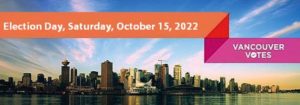
And now, to our two new favourite, first time candidates in this 2022 Vancouver civic election who, if there is any justice at all, will win in a walk on Saturday night.
Stephanie Smith, 2022 Green Party of Vancouver candidate for Vancouver City Council
A labour and social justice activist living in the Downtown Eastside of Vancouver, since the late 1990s, Stephanie Smith has worked in the non-profit sector as a front line legal advocate, most recently in the Downtown Eastside at First United, providing legal advice to those who’ve come to her expressing a concern about the conditions of their lives.
“What that’s meant is that representing tenants on the DTES, we’ve worked to save one tenancy at a time, one eviction hearing at a time. In labour terms, ‘One job, one grievance.’ One person’s income, one person’s disability benefits appeal at a time. Over the years, my colleagues and I have won countless battles, but sometimes it feels to us like we’re losing the war.”
For Stephanie Smith, entering this campaign as a Green Party candidate for Council, she has come to feel a new sense of possibility, of optimism in places that she hasn’t felt it for a long time.
“This is a terrible moment in a lot of ways. The forces aligned against people seem so overwhelming, and there’s so much suffering. So many people in Vancouver feel like they’re on the bubble, they’re one eviction notice, one demoviction, one renoviction away from never being able to come back to the city.
That profound insecurity is destructive to people, destructive to community, and destructive to our city.
There are things we can do together, if we are bold, if we are thoughtful, and if we are collaborative, that will bring security and a sense of belonging, a sense that we’re going to be able to remain here and not be pushed out of the city by developers.”
Stephanie Smith assures VanRamblings that she will dedicate every waking moment as a Vancouver City Councillor to working towards creating housing in our city that is genuinely affordable housing for wage earners, for the working poor, for seniors and single parents, for all those who are in need, where no tenant or co-operative housing member would pay more than 30% of their income to be housed, and real tenant protections enacted.
Elect Stephanie Smith, a well-experienced, grassroots community activist and people’s advocate. You can make that happen, you must make that happen, by marking your ballot for Candidate #141 this upcoming Saturday, for the people’s advocate, Stephanie Smith — to help transform Vancouver into a city for all.
Arezo Zarrabian, NPA candidate for Vancouver City Council, in which Ms. Zarrabian blows the roof off the rafters at the Vancouver Police Department’s all-candidates forum! Watch. Listen. Cheer!
NPA Vancouver candidate Arezo Zarrabian, running for a seat on Vancouver City Council is, by far, the loveliest, the strongest, the best informed, the most articulate and the candidate with the most commanding presence that we’ve come across and become acquainted with during the 2022 Vancouver civic election season.
Everyone who’s heard Arezo Zarrabian has come away mightily impressed.
Just watch and listen to the video at the top of this portion of today’s VanRamblings column, where you’ll see Vancouver’s première crime data analyst, a decorated 13-year veteran of the Vancouver Police Department, where in the video she blows the roof off the rafters because she, and she alone, knows what’s going on in our city, was the first to identify that there are four random, unprovoked attacks occurring in our city, across every one of Vancouver’s 23 neighbourhoods, on unsuspecting, innocent victims, each and every day.
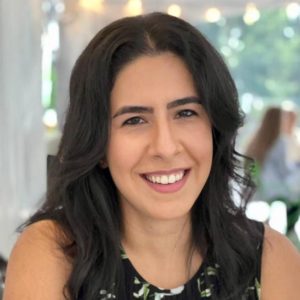
As if the video above, featuring Arezo Zarrabian as she goes up against Mayor Kennedy Stewart and ABC Vancouver Mayoral candidate Ken Sim — where she calls them out for their hapless foolishness and divisiveness — is not astoundingly impressive enough — and we’re here to tell you that it’s damned impressive — when Arezo Zarrabian, a first generation Iranian-Canadian born citizen, spoke at the University Women’s Club of Vancouver all-women candidates Women Transforming Cities forum, as she began her address to the audience, she broke down as she spoke about Mahsa Amini, whose death in police custody in the jails of Iran, has triggered continuing nationwide and worldwide protests calling for regime change in Iran. Recovering from her moving display of emotionally, Arezo Zarrabian gave, by far, the strongest, most well-received candidate speech of the evening, the only candidate to receive — in her case, alone — an extended standing applause.
If you’ve been saving yourself to vote on Election Day, this upcoming Saturday, October 15th, we strongly encourage — we beg you — to save a vote for Arezo Zarrabian, number 150 on your ballot. Quite simply, we in Vancouver need more persons of character and integrity, more informed decision-makers like heartbreakingly brilliant Arezo Zarrabian involved in the life of our city.
Believe us when we write: Arezo Zarrabian is a difference maker, from whom you will be hearing much in the months and years to come.
Saving the best for last, yes it’s the guy who makes you weep because he’s all heart, and wit and commitment, the Vancouver City Councillor who (along with his friend, and fellow member of Vancouver who is running for a second term on Council, Sarah Kirby-Yung) is a must-vote for Vancouver City Council.
Following the 2018 Vancouver civic election, in his first four-year term on Vancouver City Council, Pete Fry worked with constituents to resolve their problems with City Hall’s labyrinthine bureaucracy, while also dedicating his energies to resolving land use issues in order that the interests of Vancouver residents might best be protected. Renter protection, the provision of affordable housing, transparency and good governance, working to make Vancouver more resilient in the face of climate change, protecting our natural habitats, and supporting our vibrant arts, culture and small business communities, these were but a few of the issues that were addressed by Pete Fry in his first term on Vancouver City Council. Pete Fry is now asking for your support, to re-elect him to a 2nd term on Council.
VanRamblings say: hell yeah, VOTE FOR PETE FRY, the guy who’s on your side.
